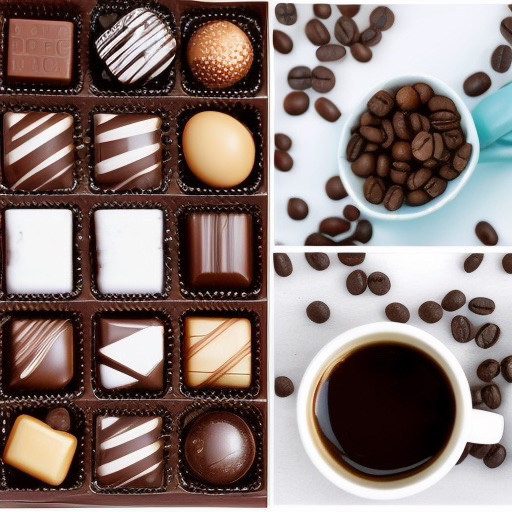If you are a coffee lover, chances are you have been tempted to add chocolate to your cup at some point. But what kind of chocolate should you be using? Should it be light or dark? To answer this question, we need to take a closer look at the flavor profiles of both types of chocolate as well as how they interact with coffee.
Light Chocolate vs Dark Chocolate
Light chocolate is made from cocoa beans that have been heavily processed, resulting in a smoother texture and sweeter taste than its dark counterpart. On the other hand, dark chocolate has a much more intense flavor and is usually made from purer cocoa beans. Dark chocolate also contains more antioxidants than light chocolate, making it the healthier option between the two.
When pairing these two chocolates with coffee, there are a few things to consider. Light chocolate will bring out the sweetness in your cup while dark chocolate will allow you to experience the complex flavors of your coffee with an added depth of richness. While light chocolate may be better suited for those who prefer their coffee sweet and mild, dark chocolate is perfect for those looking for something bolder and deeper in flavor.
How to Enjoy Your Coffee and Chocolate
Now that we understand how different types of chocolates interact with coffee, let’s talk about how to enjoy them together. A popular way to enjoy this combination is by adding one or two pieces of either type of chocolate directly into your cup as you brew it – just make sure not to use too much or else it might overpower the flavor of your coffee. You can also melt your preferred type of chocolate down into a syrup or spread if you want something more indulgent. Or if you’d rather keep things simple, opt for adding some grated or powdered cocoa instead. Regardless of which method you choose, there’s no doubt that combining delicious chocolates with rich coffees will make for an unforgettable experience each time.
Light Chocolate & Coffee Pairings
When it comes to pairing light or white chocolate with your coffee, you want something that is slightly sweet, creamy, and smooth. Some great options include lighter flavored coffees such as hazelnut, vanilla, or caramel. These flavors are all subtle enough to still allow the sweetness of the white chocolate to shine through without overpowering it. If you’re looking to add a little bit more sweetness and body to your cup of coffee, try adding some cream or even some oat milk.
Dark Chocolate & Coffee Pairings
If you’re looking for a bolder flavor combination, dark chocolate is a great option. Dark chocolate pairs particularly well with espresso-based drinks like lattes or cappuccinos because its bitterness complements the already strong flavor profile of an espresso shot. It also pairs nicely with darker roast coffees like French Roast or Italian Roast which have more intense flavor profiles that can stand up to the richness of the dark chocolate. For an extra luxurious treat, try adding some steamed milk for an added creaminess.
Adding either light or dark chocolate to your morning cup of coffee can be a great way to start off your day on the right foot. Light chocolates tend to bring out sweetness in any blend while dark chocolates offer depth and complexity that can truly take any cup over the top when done correctly. Whether it’s melting down some chips into syrup or simply sprinkling on some cocoa powder – experiment and find out which combination works best for you. With so many options available, there’s no doubt that any coffee lover can find something special when pairing their favorite beverage with some delicious chocolates.




